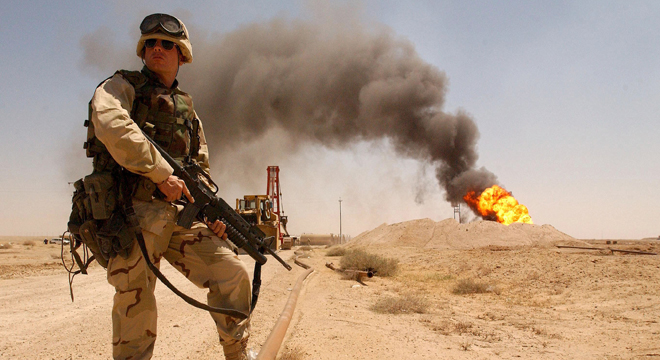In a wide-ranging study surveying US veterans, the Pew Research Center documented the attitudes of service members who were involved in the conflicts associated with the War On Terror over the last ten years and those who served before it.
The study unpacked data on veterans’ perception of their missions abroad and their effectiveness, as well as their lives since returning to the US. The overarching perception seems to contain a disconnect between service members who served in Iraq and Afghanistan and those who served in previous wars: those from the post-9/11 era are more likely to report difficulty in re-entry to civilian life.
Pew surveyed over 1,800 US service members, over a third of which served during the wars in Iraq and Afghanistan. One of the major results within the data was just how down veterans were on US involvement in those two countries.
“Veterans are more supportive than the general public of U.S. military efforts in Afghanistan and Iraq,” reads the Pew report. “Even so, they are ambivalent. Just half of all post-9/11 veterans say that, given the costs and benefits to the U.S., the war in Afghanistan has been worth fighting. A smaller share (44%) says the war in Iraq has been worth it. Only one-third (34%) say both wars have been worth fighting, and a nearly identical share (33%) say neither has been worth the costs.”
Beyond post-9/11 veterans’ view of the wars in Iraq and Afghanistan, they are also more likely to have a harder time re-entering life back in the US. They are nearly twice as likely to say say their readjustment was “difficult,” and almost half of respondents who served in the post-9/11 era said they experienced strained relationships with family. 47 percent also said that they had frequent outbursts of anger.
Pew expounded upon the differences for veterans of Iraq and Afghanistan versus those from previous wars:
…there is one front where this generation’s warriors appear to have been hit harder than their predecessors: the home front. As already noted, many more post-9/11 veterans (44%) than pre-9/11 veterans (25%) say that their readjustment to civilian life has been difficult.
Also, a greater share of post-9/11 veterans than pre-9/11 veterans report that they are carrying psychological and emotional scars arising from their time in the military. Some 37% of all post-9/11 veterans (and 49% of post-9/11 veterans who served in a combat zone) say they have suffered from post-traumatic stress [PTS]. Among pre-9/11 veterans, the comparable figures are 16% for all and 32% for those who saw combat. Post-9/11 veterans are also much more likely than those who served in earlier times to say they know someone who suffered from PTS.
But despite all of these issues, veterans are still exceptionally proud of their service and of the military in general. So much that eight in ten of those surveyed would advise a young person close to them to join. “As the United States marks the 10th anniversary of the longest period of sustained warfare in its history, the vast majority of veterans of the post-9/11 era are proud of their military service and say it has helped them mature as human beings,” Pew wrote.
Read the full report, which touches on veterans’ opinions on policy issues, service, and how they view their lives after returning home here.









